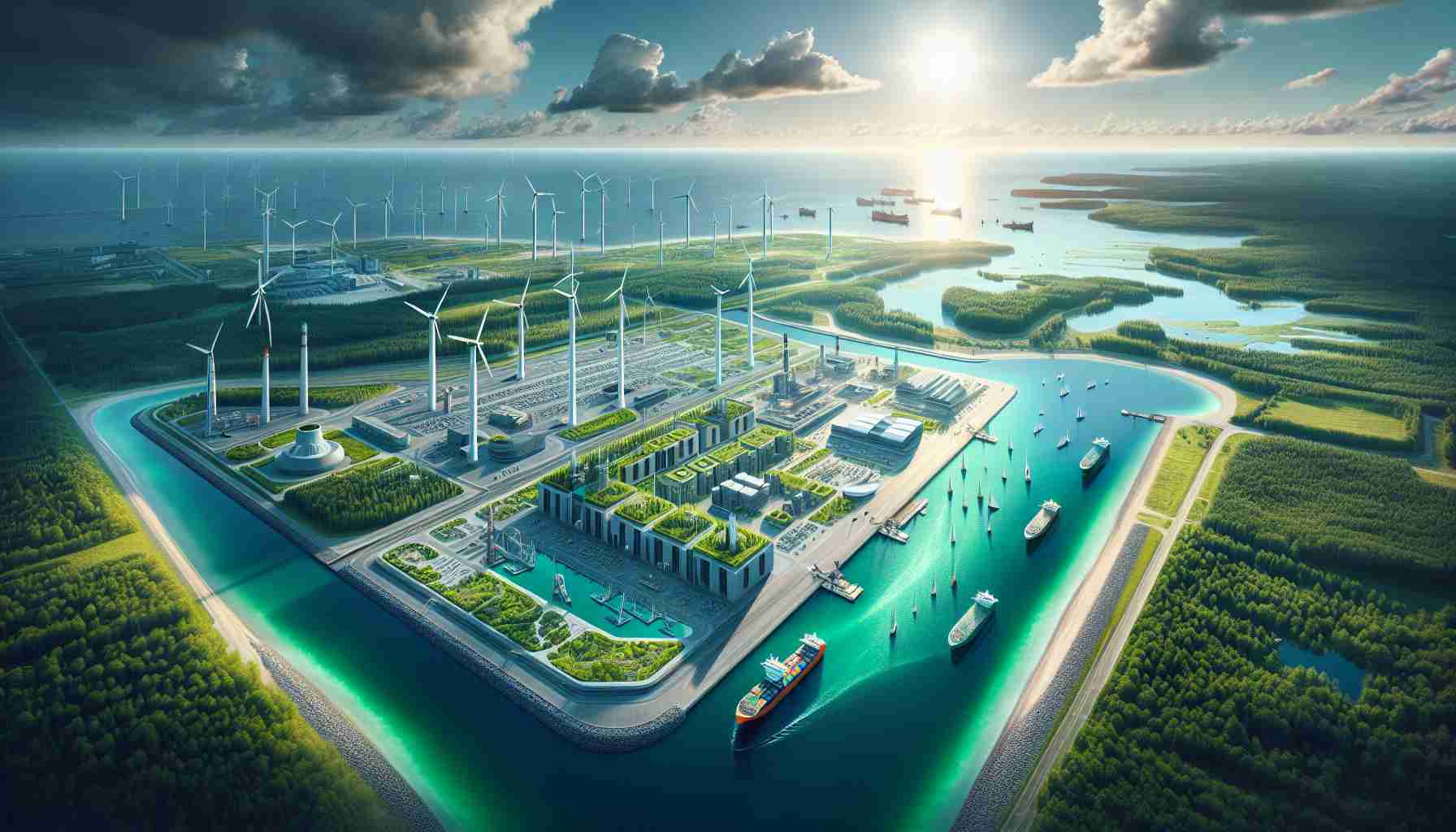Lithuania’s Shipping Industry Takes a Bold Step Forward
Lithuania is set to make waves in the shipping world with an innovative vessel that harnesses hydrogen and electric power for harbor services. Recently launched at the West Baltic Shipyard, this groundbreaking ship represents a significant leap toward sustainable maritime operations.
The ambitious project, valued at €12 million (roughly US$12.5 million), is a collaboration between the Klaipeda State Seaport Authority and Baltic Workboats. Measuring 42 meters (138 feet) in length, this tanker will be the first of its kind in Lithuania, utilizing cutting-edge hydrogen technology alongside battery power, and positioning the nation among global leaders in green shipping solutions.
Equipped with two electric motors and a robust 2,000 kWh battery system, the vessel’s hydrogen fuel cell enables up to 36 hours of operation within the port, depending on usage. This initiative marks a transformative approach to port management, focusing on sustainability and modernization.
The primary role of this vessel will be to manage waste effectively, collecting stormwater, sewage, sludge, and litter. It features specialized tanks and a state-of-the-art rainwater treatment facility, ensuring that treated water can be efficiently routed to local sewage treatment systems.
As one of the first environmentally friendly ships, its planned service launch before the end of 2025 promises to enhance Lithuania’s reputation as a forward-thinking maritime nation.
Setting Sail for a Sustainable Future: The Broader Implications of Lithuania’s Hydrogen-Powered Vessel
Lithuania’s foray into sustainable shipping technology is not merely a local achievement; it holds significant implications for the shipping industry, environmental stewardship, and the global economy. By pioneering a vessel that combines hydrogen and battery power, Lithuania is reshaping maritime practices and setting a precedent for other nations.
The transition to green shipping is increasingly relevant as the maritime sector accounts for nearly 3% of global greenhouse gas emissions. By adopting innovative technologies like hydrogen fuel cells, Lithuania joins a growing wave of environmental consciousness that could inspire global shipping fleets to follow suit, potentially curbing emissions on a larger scale.
Moreover, this initiative aligns with the European Union’s broader goals for sustainable development. As regulations tighten around emissions standards, Lithuania’s proactive steps in advancing eco-friendly maritime solutions may catalyze economic growth through job creation in green technology and infrastructure. It underscores a cultural shift towards recognizing the maritime sector’s duty to protect marine environments and contributes to a circular economy by managing waste effectively.
In the long run, Lithuania’s pioneering position could stimulate further innovations. As advancements in hydrogen technology improve, we may see a revolution in maritime logistics, enhancing global trade efficiencies while fostering a commitment to sustainability. The ripple effects could reshape competitive dynamics in international shipping, prompting nations to reassess their environmental strategies and investments in new technologies. Thus, Lithuania’s venture not only elevates its maritime reputation but could indeed be a pivotal moment for the global shipping landscape.
Revolutionizing Green Shipping: Lithuania’s Innovative Hydrogen-Powered Vessel
Overview of Lithuania’s New Vessel
Lithuania’s shipping industry is embracing innovation with the introduction of a pioneering vessel designed for harbor services, powered by both hydrogen and electric technology. This groundbreaking ship, recently launched at the West Baltic Shipyard, represents a major development in sustainable maritime operations, with a project budget of €12 million (approximately US$12.5 million).
Features of the Vessel
This state-of-the-art vessel, measuring 42 meters (138 feet) in length, stands out as Lithuania’s first ship to harness hydrogen and electric power. It boasts:
– Hybrid Propulsion System: Equipped with two electric motors complemented by a 2,000 kWh battery system and a hydrogen fuel cell.
– Operational Efficiency: Able to operate for up to 36 hours in port, depending on energy consumption.
– Waste Management Capabilities: Specially designed tanks for handling stormwater, sewage, sludge, and litter, along with a modern rainwater treatment facility to enhance local environmental efforts.
Use Cases and Applications
The vessel will primarily serve a crucial role in waste management within the port area. It will facilitate the collection and treatment of various waste types, ensuring that treated water is directed efficiently to local sewage systems. This operational strategy not only enhances the efficiency of port services but also forefronts environmental considerations in maritime activities.
Sustainability Efforts and Innovations
Lithuania’s commitment to sustainability is highlighted by this initiative. By integrating hydrogen fuel technology, the country is making strides in reducing its carbon footprint and setting a trend for other nations in the shipping industry. The vessel’s operations are anticipated to be a model for environmentally responsible port management.
Market Impact and Insights
The launch of this innovative vessel positions Lithuania as a leader in green shipping solutions on a global scale. The collaboration between the Klaipeda State Seaport Authority and Baltic Workboats exemplifies a successful public-private partnership aimed at bolstering the country’s maritime capabilities and environmental standards.
Limitations and Challenges
While the project’s potential is significant, there are challenges to consider. The reliance on technology like hydrogen fuel cells requires ongoing investment in infrastructure and training for personnel to handle advanced systems. Additionally, the adoption of such vessels on a larger scale will depend on the development of widespread support for hydrogen as a viable marine fuel alternative.
Future Predictions
With the planned service launch set for before the end of 2025, stakeholders in Lithuania’s shipping and environmental sectors are closely monitoring this venture. If successful, it could pave the way for more environmentally-friendly ships, encouraging other maritime nations to follow suit in pursuing sustainable solutions.
For more about Lithuania’s initiatives in shipping and sustainability, you can visit the Klaipeda State Seaport Authority.


